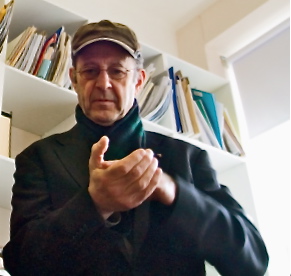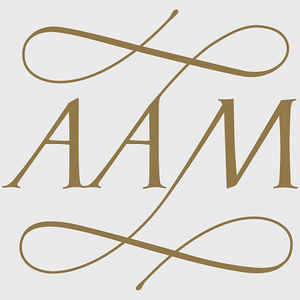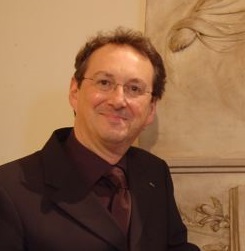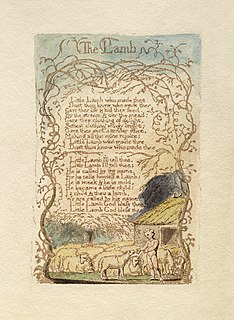Related Research Articles

Stephen Michael Reich is an American composer known for his contribution to the development of minimal music in the mid to late 1960s.

Arvo Pärt is an Estonian composer of classical and religious music. Since the late 1970s, Pärt has worked in a minimalist style that employs his self-invented compositional technique, tintinnabuli. Pärt's music is in part inspired by Gregorian chant. His most performed works include Fratres (1977), Spiegel im Spiegel (1978), and Für Alina (1976). From 2011 to 2018, Pärt was the most performed living composer in the world, and the second most performed in 2019. The Arvo Pärt Centre, in Laulasmaa, was opened to the public in 2018.
Sir John Kenneth Tavener was an English composer, known for his extensive output of choral religious works. Among his best known works are The Lamb (1982) The Protecting Veil, (1988) and Song for Athene (1993).

The Academy of Ancient Music (AAM) is a British period-instrument orchestra based in Cambridge, England. Founded by harpsichordist Christopher Hogwood in 1973, it was named after an 18th-century organisation of the same name. The musicians play on either original instruments from the period when the music was composed or modern copies of such instruments. They generally play Baroque and Classical music, though they have also played some new compositions for baroque orchestra in recent years.

Sir Stephen John Cleobury was an English organist and music director. He worked with the Choir of King's College, Cambridge, where he served as music director from 1982 to 2019, and with the BBC Singers.

Sir David Valentine Willcocks, was a British choral conductor, organist, composer and music administrator. He was particularly well known for his association with the Choir of King's College, Cambridge, which he directed from 1957 to 1974, making frequent broadcasts and recordings. Several of the descants and carol arrangements he wrote for the annual service of Nine Lessons and Carols were published in the series of books Carols for Choirs which he edited along with Reginald Jacques and John Rutter. He was also director of the Royal College of Music in London.
This is a summary of 2003 in music in the United Kingdom.

The Tallis Scholars is a British professional early music vocal ensemble normally consisting of two singers per part, with a core group of ten singers. They specialise in performing a cappella sacred vocal music.

The London Sinfonietta is an English contemporary chamber orchestra founded in 1968 and based in London.

The Whale is a "dramatic cantata" written by the English composer John Tavener in 1966.

Anthony Edward Payne was an English composer, music critic and musicologist. He is best known for his acclaimed completion of Edward Elgar's third symphony, which subsequently gained wide acceptance into Elgar's oeuvre. Besides opera, his own works include representatives of most traditional genres, and although he made significant contributions to orchestral and choral repertoire, he is particularly noted for his chamber music. Many of these chamber works were written for his wife, the soprano Jane Manning, and the new music ensemble Jane's Minstrels, which he founded with Manning in 1988. Initially an unrelenting proponent of modernist music, by the 1980s his compositions had embraced aspects of the late romanticism of England, described by his colleague Susan Bradshaw as "modernized nostalgia". His mature style is thus characterized by a highly individualized combination of modernism and English romanticism, as well as numerology, wide spaced harmonies, specific intervallic characterizations, and the alternation between strict and fluid rhythmic frameworks.

A Celtic Requiem is a requiem by the English composer John Tavener, written in 1969. It is written for soprano, children's choir and orchestra.
"Song for Athene" is a musical composition by British composer John Tavener with lyrics by Mother Thekla, an Orthodox nun, which is intended to be sung a cappella by a four-part choir. It is Tavener's best known work, having been performed by the Westminster Abbey Choir conducted by Martin Neary at the funeral service of Diana, Princess of Wales, on 6 September 1997 as her cortège departed from Westminster Abbey.
The Protecting Veil is a late 20th-century classical composition for cello and strings by British composer John Tavener. It was on the short list of nominees for the 1992 Mercury Prize.

The Holst Singers are an amateur choir based in London, England. The choir is named indirectly after the English composer Gustav Holst, taking its name from the Holst Room at St Paul's Girls' School, the venue for rehearsals during the choir's early years.

Peter Phillips is a British choral conductor and musicologist. He was the founder of The Tallis Scholars in 1973 and of Gimell Records in 1980.
21st-century classical music is art music, in the contemporary classical tradition, that has been produced since the year 2000.

The Lamb is a choral work by British composer John Tavener composed in 1982. It is a setting to music of the William Blake poem The Lamb from Blake's collection of poems Songs of Innocence. It is one of Tavener's best known works.
And God Created Great Whales, Op. 229, No. 1, is a symphonic poem for orchestra and recorded whale sounds by the American composer Alan Hovhaness. The work was commissioned by Andre Kostelanetz and the New York Philharmonic, who premiered the piece on June 11, 1970, in New York City. The piece has been recorded numerous times and remains one of Hovhaness's most popular compositions. It has also been credited as an early work in the movement to save whales from extinction, alongside John Tavener's 1966 cantata The Whale. The title of the work comes from Genesis 1:21 in the King James Version of the Bible.
The Veil of the Temple is a piece of choral music by British composer Sir John Tavener. Identified by Tavener as "the supreme achievement of my life", it is set for four choirs, several orchestras and soloists and lasts at least seven hours. It is based on text from a number of religions, and received its world premiere performance at the Temple Church, London in June 2003.
References
- 1 2 3 "John Tavener: Composer divided opinion but left memorable musical legacy". The Sydney Morning Herald . Fairfax Media. 13 November 2013. Retrieved 11 June 2014.
- ↑ Ivan Hewett (8 July 2013). "John Tavener, Manchester International Festival". The Daily Telegraph . Telegraph Media Group . Retrieved 11 June 2014.